Women who suffered sexual abuse at the hands of guards at a notorious federal prison in California are now seeking compassionate release.

When Kendra Drysdale was groped by a prison guard during a pat-down, she knew that reporting it internally within her facility, the federal prison FCI Dublin, would only make things worse. So she emailed a report to what she thought was a direct line to the Department of Justice. But Dublin leadership caught wind of the email, accused her of lying in order to file a false report, and ordered her into a disciplinary hearing.
“What do you want to keep?” Drysdale remembers an officer asking her during the disciplinary hearing. She thought immediately of her 22-year-old daughter, who’d lost her dad and had only her to rely on, and asked through tears to keep access to phone calls so they could still communicate. “And she said, ‘Okay, I’m taking your phone. I’m taking your email. I’m taking your video visits, I’m taking your in person visits,’” Drysdale recalled. The prison also took away her job, her access to commissary, and, most crushingly, her early release credits, leaving her in prison for several months past the date she was supposed to go home.
Drysdale’s story is just the tip of the iceberg at FCI Dublin, the now-notorious federal prison in Northern California whose employees preyed on the prisoners in their custody for years in a culture so pervasive that prison staff nicknamed it “the rape club.” The chaplain was abusing women. Medical staff were abusing women. The warden, who had trained staff on the Prison Rape Elimination Act, was abusing women.
At FCI Dublin, “Everybody knew something, everybody had observed something,” said Tess Korth, who worked as a correctional officer at the prison for 25 years until she says she was forced out for calling out the abuse. “In my opinion, they enabled all this stuff to continue going on.” Internal attempts to address the situation went nowhere:
Korth told Bolts that she made reports of the abuse within the Bureau of Prisons (BOP) for six years, starting in 2016, with no results.
These violations finally came to light in 2021 after an investigation by the Department of Justice, which oversees the BOP, led to the indictment of a guard. Eventually, seven FCI Dublin employees, including the warden, were convicted of sexual abuse (an eighth will stand trial next year). In February, the California Coalition of Women Prisoners (CCWP), a member of the Dublin Prisoner Solidarity Coalition, filed a class-action lawsuit against the BOP. This past March, a federal judge appointed a special master to look into the allegations, which advocates hoped would bring some measure of oversight. Then, in April, the BOP announced it was closing the facility entirely.
Drysdale and a few others whose sentences were ending were released, but nearly everyone else was transferred, sent to over a dozen different federal prisons throughout the country, some thousands of miles from their family and children. Women were retaliated against further on the drive there, as Lisa Fernandez, who has covered sexual abuse at FCI Dublin since early 2022, reported recently for Rolling Stone; many face ongoing retaliation at their new facilities.

Kendra Drysdale (right) and her daughter. (Photo courtesy of Kendra Drysdale)
It’s difficult to imagine a more serious abuse of power than a prison guard who preys on a person whose every action he already controls—her communication with the outside world, her visits with her family; her access to food, supplies, showers, medical care. Federal prison officials allowed this type of abuse to go on unchecked for years. Now that the story has broken open, the litigation, prosecutions, and efforts to establish broader federal oversight are really attempts to answer one central question: What does an appropriate remedy look like?
Lately, lawyers representing the survivors are trying a novel strategy: compassionate release. The mechanism, generally conceived of as a last-resort option for dying or medically incapacitated prisoners, is for the first time being considered as a reparative measure for women who were sexually abused while in federal custody.
“We thought, what’s more extraordinary and compelling, which is the standard for compassionate release, than being sexually abused by prison guards after your sentence has been imposed?” said Shanna Rifkin, deputy general counsel for Families Against Mandatory Minimums (FAMM), who is spearheading the effort. “No federal judge sentences people to be sexually abused in prison.”
FAMM and the pro bono lawyers working with them have helped secure compassionate release for 17 former inhabitants of FCI Dublin thus far, and they’re evaluating 95 additional requests for legal aid from women formerly held at the facility. But seeking this remedy has come with its own challenges—ones that underscore precisely why it’s so difficult to eradicate sexual violence in prison.
The Department of Justice has stressed that it is seeking long sentences for prison employees charged with these crimes. In response to a request for comment, a DOJ spokesperson emphasized the 20 BOP employee prosecutions the Department has brought since January 2021, and wrote in a statement that “The Department of Justice has and will continue to prioritize seeking justice for victims of sexual assault by FBOP employees.” But survivors and advocates say that prosecution alone, fails to help victims of sexual abuse heal—nor does it stop the harm at its root, given how far the cover-up and retaliation at FCI Dublin extended beyond the officers charged with criminal offenses.
“The issues at Dublin really had a spotlight on them for good reason, but the issues run all the way up the ladder to the highest points of BOP,” said Courtney Hanson, the development and communications coordinator for the California Coalition for Women Prisoners. Given that sexual assault in federal prison is widespread, FAMM estimates many more people could be eligible for compassionate release around the country.
Bolts reviewed data compiled by CCWP on the current whereabouts of more than 100 women who were being held at Dublin when it closed, and found that the vast majority were transferred to other federal facilities with a documented history of sexual abuse by guards. “It’s prevalent through the whole BOP,” Drysdale said. “They’re not safe anywhere.”
Since Congress established federal compassionate release via the Sentencing Reform Act of 1984, the process has been open to anyone who can prove an “extraordinary and compelling” reason that they should be freed before the end of their sentence—at least in theory. In practice, compassionate releases are rare, though a 2018 reform that allowed prisoners to petition the courts themselves led to a sharp increase in the number of applications, especially after the COVID-19 pandemic began.
FAMM has long pushed for reforms to the compassionate release process at both the federal and state level, where access can be even more patchwork and dysfunctional. After the revelations of widespread abuse at FCI Dublin, Rifkin helped convene a group of pro bono lawyers to bring compassionate release cases before federal judges. They argued that sexual abuse in custody should qualify as a reason for release—both as a concrete reparative measure the government can offer, and as a necessary precondition to healing—and many of the judges agreed.
Seventeen former FCI Dublin prisoners have now won their freedom after arguing that the sexual abuse they experienced in prison constituted an extraordinary and compelling change of circumstances. The road ahead is by no means easy, but Rifkin noted that release has allowed women to reconnect with their children and access resources like peer support and therapy. “Just being able to be outside, just being with your family—there’s a lot that that offers,” she told Bolts.
To Kelly Savage-Rodriguez, who worked to reform state-level compassionate release in California in 2022 and now works with CCWP, the reasoning behind release is simple. “You can’t get healed and deal with the trauma of that sitting in a cell,” Savage-Rodriguez told Bolts. “You need to be able to get counseling… not be told to shut up and sit down and this is why we’re gonna punish you more.”

Members of the Dublin Prison Solidarity Coalition give a press conference after filing their class-action lawsuit against the BOP in August 2023. (Photo courtesy of Courtney Hanson, Dublin Prison Solidarity Coalition)
In order to facilitate these individual compassionate release applications, FAMM sought to enshrine the principle that sexual abuse in custody qualifies as a reason for release within federal sentencing policy. To do so, they had to go through the people who decide what “extraordinary and compelling” means: the U.S. Sentencing Commission, an independent federal agency made up of seven presidential appointees. (Its most famous recent alumna is Supreme Court Justice Ketanji Brown Jackson).
Douglas Berman, a professor at Ohio State University’s Moritz College of Law and the author of the Sentencing Law and Policy blog, told Bolts that the commission has an enormous amount of influence over sentencing policy, even as it has historically chosen to take a modest and conservative view of its own power. “I think it could do an awful lot and dramatically shape many aspects of our nation’s criminal justice systems,” Berman said. “But even in its more sort of focused role that it’s adopted, the federal sentencing guidelines are still central to literally every single federal sentencing that takes place—and that’s upwards of 60–70,000 persons every year.”
Starting in early 2019, the Sentencing Commission lacked a quorum after two rounds of Trump nominees proved too controversial for Senate confirmation (one, a federal judge known as “Hang ‘Em High Henry,” once said “I live to put people in jail”). For several years, nothing got done. But all seven of Biden’s nominees eventually proved more successful, and by mid-2022, the commission was back in action with four Democrats and three Republicans, in keeping with requirements to seat no more than four members of the same party.
In April 2023, after FAMM’s request, the commission significantly expanded eligibility for compassionate release, including adding sexual abuse in custody as a criteria. It seemed like a victory—but it was actually about to make winning compassionate release even more challenging for survivors.
At the DOJ’s behest, the sentencing commission added two hurdles that people sexually assaulted by prison employees have to clear in order to be considered eligible for compassionate release: The sexual contact must be penetrative, and proof that the abuse occurred must come in the form of a criminal conviction, a civil admission or finding of liability, or an internal administrative finding. These changes took effect on Nov. 1, 2023. Berman said this sort of deference to the DOJ is not uncommon, even though this commission is notably more progressive than past incarnations. “Under any leadership, under any structure, we’ve long seen the Department of Justice and its voice find significant attention in the work of the Commission,” he told Bolts.
But Rifkin says these hurdles ignore the reality of what sexual violence in prison looks like and how it’s adjudicated. “Many of the people at Dublin were sexually abused in a way that was intense stalking and harassment and abuses of power, but not penetrative genital contact,” she told Bolts. “We have a lot of people for whom a guard would stand outside their cell and say, ‘I’ll only let you use the shower if you take off your shirt and flash me’ or, ‘I’ll only let you leave and go to the lunch line if you touch yourself in front of me.’”
The admission of liability requirement also runs counter to the way that sexual assault claims are often handled by the BOP. A 2023 investigation by The Appeal, for instance, found that many civil cases alleging abuse at another federal prison, FCI Tallahassee, were settled out of court.
Ironically, after the new sexual assault criteria became effective, Rifkin said, these compassionate release applications faced a steeper uphill battle than when there were no criteria in place at all. “After November 1 and this new policy statement, we’ve seen many federal prosecutors who are really kind of digging their feet in the sand and saying, ‘If you don’t meet these exact standards, we’re not going to agree to the case. And we will oppose it,’” she told Bolts.
Rifkin said that FAMM will be petitioning the Sentencing Commission to reconsider the evidentiary hurdles, highlighting their “unintended consequences.” But she stressed that it’s well within the DOJ’s power to “make clear to U.S. Attorneys Offices across the country that they should be cooperating with survivors of abuse and their attorneys to help move these cases forward.”
Bolts asked the Department of Justice whether the agency has given U.S. attorneys’ offices explicit guidance on how to approach compassionate release cases that involve sexual abuse in custody, and for a response to FAMM’s pushback on the evidentiary hurdles. A DOJ spokesperson responded, “While only a federal court can grant a petition for compassionate release, the Department fully supports the FBOP Director [Colette S. Peters] as she continues to move for compassionate release for victims in appropriate cases.” Sentencing Commission data for Fiscal Year 2023 shows that Peters used her authority to bring just 7 of the 431 compassionate release petitions that a federal judge ultimately granted (There is no indication of whether any of those 7 were victims of sexual abuse by prison staff).
In a statement to Bolts, a BOP spokesperson said, “The FBOP is prioritizing compassionate release for victims of sexual abuse by FBOP employees. While the FBOP can’t directly reduce sentences, we recommend eligible individuals to the U.S. Attorney’s Office. The FBOP is also revising the Compassionate Release policy to broaden eligibility.”
If the Sentencing Commission reconsiders the evidentiary hurdles, it could pave the way for a slew of new compassionate release cases; Rifkin says there’s no telling just how many federal prisoners might be victims of sexual abuse by BOP employees. Besides the 95 cases it’s evaluating from FCI Dublin, FAMM and its network of lawyers have accepted five compassionate release cases on behalf of women incarcerated at FCI Tallahassee, where sexual abuse has been reported for decades. (At least three guards have been indicted in the past two years; and the prison was the site of a shocking shoot-out in 2006, when a guard indicted in a sexual bribery scheme opened fire on federal agents who had come to arrest him and five of his colleagues).

Linda De La Rosa, who was formerly incarcerated at FMC Lexington, testifies before Congress in December 2022 about the abuse she endured. (CSPAN)
In December 2022, a congressional probe led by Georgia Senator Jon Ossoff found that sexual violence is rampant in federal custody. “The BOP is failing systemically to prevent, detect, and address sexual abuse of prisoners by its own employees,” Ossoff said during the hearing, calling the culture of abuse “cruel and unusual punishment.” A bill resulting from this research, the Federal Prison Oversight Act, passed the U.S. House in May.
Before she was transferred to FCI Dublin, Kendra Drysdale spent 11 months at the Federal Medical Center, Carswell, in Texas, where she says sexual abuse by guards, and retaliation for reporting it, was also rampant. Scores of women at Dublin have since been transferred to other federal facilities with documented histories of guard sexual abuse, including Carswell. And women have reported retributive solitary confinement, strip searches, medical neglect, denial of food, and verbal abuse at their new prisons. “There’s sexual assault victims all over the country right now being severely retaliated against—ongoing, ongoing, ongoing—because they spoke out,” Drysdale said.
Since her release in April, Drysdale has thrown herself into the process of recovery. “I went in diagnosed with compound trauma disorder, and I came out of it feeling like I just got more and more trauma than I ever had,” she told Bolts. She said she is lucky to be able to stay with family on a farm in the Santa Cruz mountains, where she tries to push herself to explore nature, despite naturally gravitating toward the studio apartment she sleeps in after spending years in a cell. She has found a therapist and other peer support. She finds herself crying a lot these days, which she takes as a sign that she finally has a safe place to begin to process everything she went through.

Kendra Drysdale at home in Santa Cruz. (Photo courtesy of Kendra Drysdale)
And Drysdale has begun working with the Dublin Prisoner Solidarity Coalition to advocate for women’s rights in federal custody, which she sees as a crucial component of her recovery. “Doing this helps me get better because I know I am doing what I can to help others still suffering,” she told Bolts.
The FCI Dublin developments come as state and local prison and jail systems also fail to prevent sexual abuse by employees within their walls. The Texas Office of the Inspector General has received more than 600 complaints of sexual abuse by prison guards over the past five years, Texas Public Radio reports. In New York, the Adult Survivors Act has paved the way for more than 700 lawsuits over alleged sexual abuse at Rikers Island.
And the California Department of Corrections and Rehabilitation is currently facing its own scandal over sexual abuse in custody. This January, attorneys filed a lawsuit on behalf of over 130 women who say they were abused in custody at California’s two women’s prisons; one guard allegedly assaulted more than 22 women over a decade-long span and now faces 96 abuse charges. As with the federal Bureau of Prisons, CDCR has been reluctant to consider releases as a remedy for survivors of sexual abuse, CCWP’s Savage-Rodriguez said.
Meanwhile, organizers with the Dublin Prisoner Solidarity Coalition say they will keep fighting for releases, along with a host of other protective measures, for everyone transferred out of FCI Dublin this spring. Hanson said that CCWP’s work has shown that the problem of sexual abuse within prison is fundamental to the institution of prison itself. “In every single carceral institution where we’ve ever worked with people, we hear stories of gender violence and assault,” she told Bolts. “While Dublin has been a particularly egregious example, we think ultimately, we need other systems of care and accountability altogether.”
Updated (July 8) with BOP comment

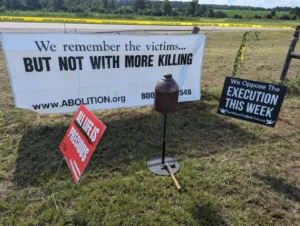







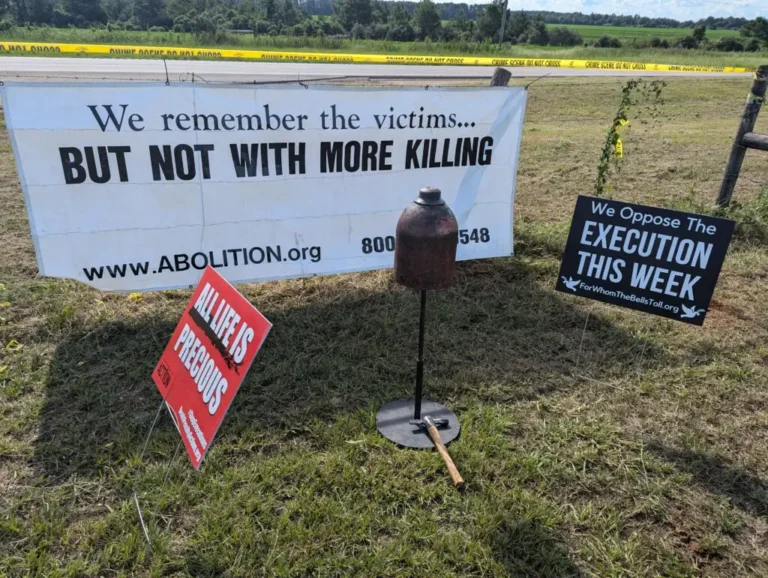



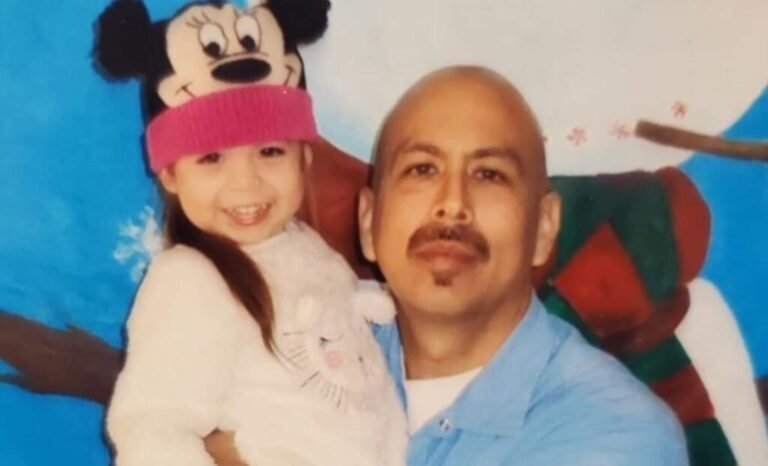
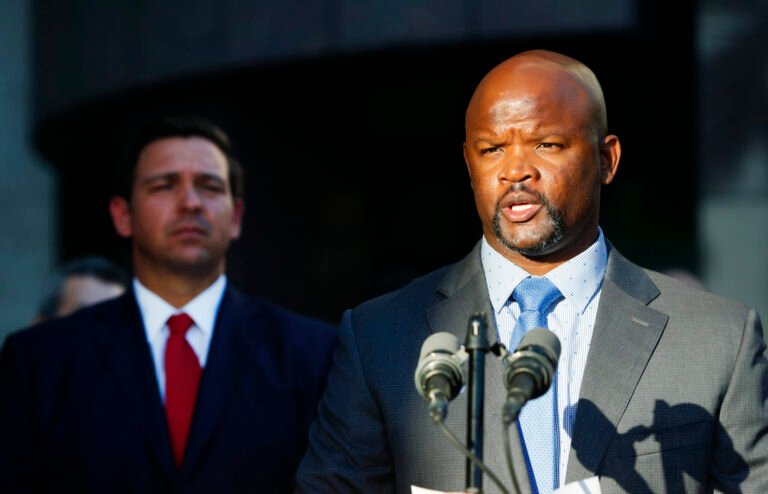
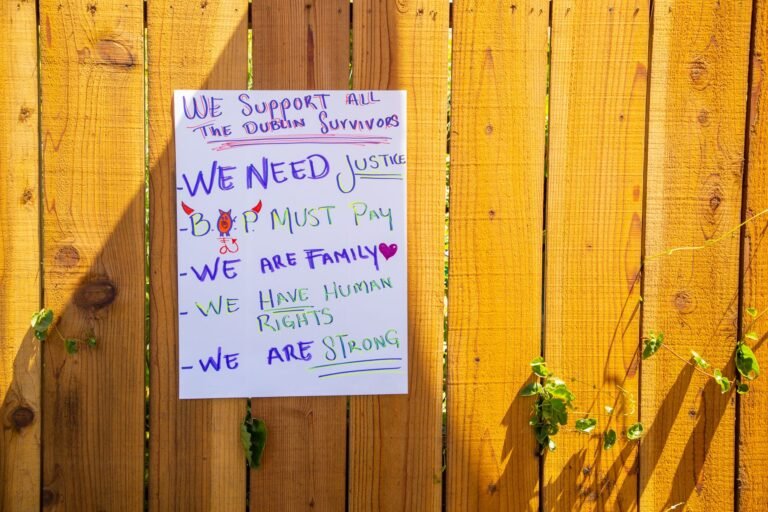

+ There are no comments
Add yours